Brian Wiele is Lead Pastor at River Ridge Covenant Church in Olympia, Washington, and serves as Chair of the Commission for Biblical Gender Equality for the Evangelical Covenant Church, which exists to equip the church to articulate the truth about Biblical equality regarding gender; and to advocate for women in ministry and leadership in all possible venues within the church.
Last week I had the honor of joining eight-hundred-fifty women for Triennial, the outstanding conference for ECC Women Ministries. As one of the two dozen or so men attending, my presence created a light-hearted cognitive dissonance, like seeing a giraffe standing among a group of swans. At six foot three, towering over the fifteen women in the hotel elevator, I was once again politely asked the question: “What brings you to Triennial?”
Thinking is good. It’s natural and healthy to attempt to resolve conflicting thoughts in one’s mind. “One of these things is not like the other, one of these things just doesn’t belong.” What’s up with that?
My official reason for attending was to co-lead with Pastor Abby Jones a workshop on the Develop a Deborah initiative. (You can learn more here). A small (two dozen) but lively and responsive group of women attended. The low turnout can partly be attributed to the fact that our seminar was added to the slate of workshops after many people had already registered. Realistically however, the topic of women in ministry is not necessarily the primary thought on the minds of many people.
Because of my role serving on the Commission on Biblical Gender Equality I was also invited to attend a breakfast for women clergy, at which the fortieth anniversary of the ordination of women in the ECC was celebrated. Near the end of the meeting, I was given the opportunity to briefly share about our commission’s hope for Develop a Deborah – that many local congregations would identify and encourage girls and women who have leadership gifts.
I told them that I could trace back my role on the commission and even my participation at Triennial back to cognitive dissonance, specifically the effect one woman had on the collective mind of our congregation. In 2007-8, Kirsten Kronberg Burdick was the first woman to serve our congregation for a year as a North Park Seminary pastoral intern.
No one could deny that the Holy Spirit was powerfully present and active in her ministry among us, especially as the year progressed. This had an unshakeable impact upon those in our fellowship who were not comfortable with the idea of women in ministry. Kirsten’s presence and pastoral gifts caused people to attempt to resolve the conflict in their minds – God was blessing them and speaking to them, but it was through a woman. Hmmm, what does that mean?
Thinking is good, but it’s not always comfortable or easy, which is why it’s often avoided or discouraged. An ordered and predictable life is much preferred; uncertainty can just make us grouchy. When someone rearranges the cupboards at home or the aisles at our favorite store, it causes an existential vertigo. If my long-held convictions are shown to be suspect, that means I might also have to examine other areas of my theology, so I’d rather not think about it.
Jesus made people think, which sometimes also made people mad. Parables without a moral application – what does it mean? Why is he talking to that woman? God desires to stir up the placid waters of our minds: When you did these things and I kept silent, you thought I was exactly like you. But I now arraign you and set my accusations before you. (Psalm 50:21 NIV).
The Commission on Biblical Gender Equality is attempting to distill the Develop a Deborah initiative into one simple question: who is the girl or woman in your ministry context who follows hard after God? Whose obvious giftedness will subsequently stir up a healthy debate in the minds of those who like to keep God in a neat little box?
Yes, thinking is good. But may we never settle for thoughts that limit God or that lull us into a comfortable slumber. The people of your congregation may not want to think about women in ministry, but it’s vitally important that their minds be engaged on the subject. Our apathy can have the effect of stifling or discouraging that one person from living into the call of God on her life. I can’t imagine God would be pleased with that kind of thinking.
For the sake of the Kingdom, Develop that Deborah among you.


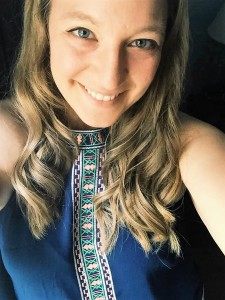
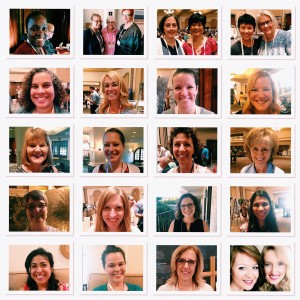
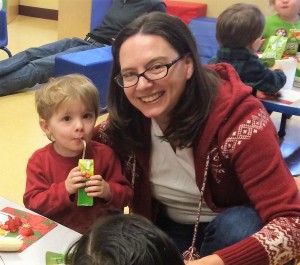
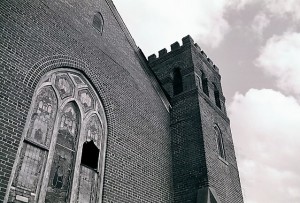
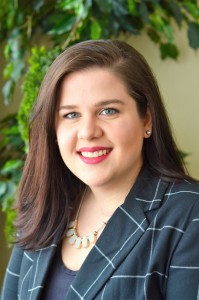
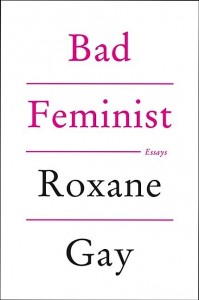
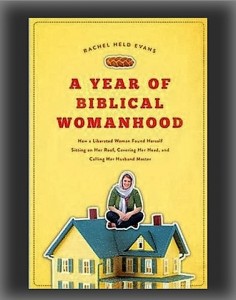
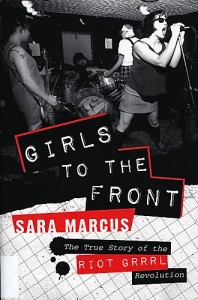
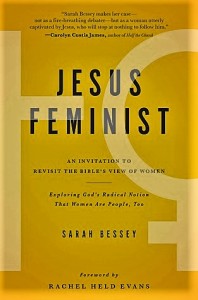
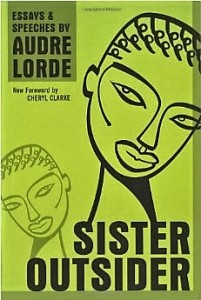
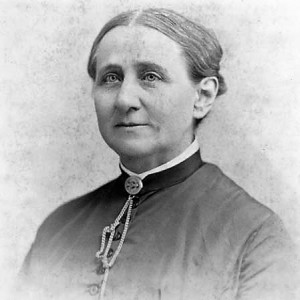
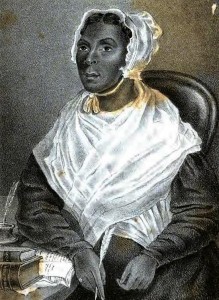

The Creation of Patriarchy
Filed under: Book & Commentary, Testimonies and Stories
Dru McLeland graduated with a Master of Divinity degree from Northern Theological Seminary in June and is currently seeking God’s next place of ministry call in the ECC. In the meantime, she and her family are enjoying their new Cavachon puppy, Zoë Ruby Regina.
Recently, I had a conversation with a young woman who is a chaplain in training about women in ministry and I mentioned the ECC’s Commission on Biblical Gender Equality. She asked, “Is there gender equality in the Bible? Isn’t the Bible patriarchal?” I answered, “Well, yes, especially in the Old Testament.” I started asking, why? I don’t see patriarchy in the creation of Adam and Eve. Both are created in the image of God. God blessed THEM, and told THEM to “fill the earth and subdue it; and have dominion…over every living thing that moves upon the earth. God did not give a command that society has to be patriarchal. I wonder is patriarchy God’s design or is it something humans created?
Several years ago, I read All God’s People (here). In that book, Jay Phelan’s brief history of hierarchal development was my first introduction to the idea that patriarchy may not be God’s creation, but I wanted to know more. Since I had thousands of pages to read for seminary classes, I set aside my question but occasionally returned to it and asked God to show me more. The Teacher did not forget my question. My final class in seminary, Women of the Old Testament, addressed it. One of our texts was The Creation of Patriarchy, (here)by Gerda Lerner (New York: Oxford University Press, 1986.) the first in a two-volume work.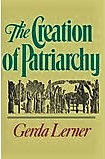
Lerner, who died in 2013, had an unusual childhood in the early 20th century that included a Bohemian mother, escaping the Nazi’s, and targeting by McCarthyism. She made the study of African American and women’s history her life’s work. For a brief biography of Lerner, click here.
Her book is an attempt “to trace, by means of historical evidence, the development of the leading ideas, symbols, and metaphors by which patriarchal gender relations were incorporated into Western civilization” (p. 10). As one who is newly conscious of the role of patriarchy in Western society and witness to its creep into the Church, but not a historian, I found her book a great place to start and a springboard for further investigation and study. She includes anthropological evidence of societies that may have been egalitarian and others that may have been matriarchal to show that not all ancient societies were patriarchal. She challenges the tradition of patriarchy which she asserts has been “mystified… making it ahistoric, eternal, invisible, and unchanging” (p. 37). This may seem a little over the top to some, but I think it challenges us to think about our views of patriarchy and how it effects our lives as well as those around us.
One of the main ways Lerner’s writing challenged me was the connection she made between the oppression of women when they are seen as objects and how this paved the way for slavery of all kinds. Women came to be seen as a commodity, as belonging to a man or household, with their status established because of their ability or lack of ability to produce offspring. The strength of the natural urges of a mother to protect the life of a baby set her apart from men. Especially in war, this vulnerability made women more easily subdued and subjected to slavery by conquerors. Lerner hypothesizes that the enslavement of women was a precursor to slavery in general. Women came to be seen as less than human, “other” and treated as an object or commodity. Lest we think this is history only, we have only to look at the numbers of people who are victims of human trafficking because someone is willing to pay for them as a sex object. (See the US Government 2016 report on human trafficking here; find your state here.)
Against the context of Lerner’s book, I see the Apostle Paul’s letter to the Ephesians as just as radical in our day as in his. Christ came to break down the divisions patriarchal systems create. He came to create a new humanity where all are one with new identity as members of the household of God, no matter what we are able contribute, but because we are human beings, created in God’s image.
Whether one agrees with Lerner about the creation of patriarchy or not, I believe there is a challenge for us as we look at others. I ask myself and invite you to ask yourself a couple of questions. When interacting with others, do I see them as objects or commodities in anyway? Do I remember I am united in Christ with other Christians when we interact?
I would like to continue this conversation. Where have you discovered that you might be seeing another as an object or “the other” rather than God’s created person? If you have read Lerner’s book, what do you think about it? Please leave a reply.
Report This Post